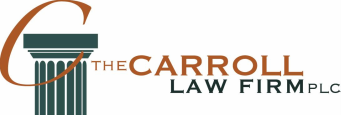Of all the things we own, our home and its belongings are probably our most prized possessions. We buy insurance to cover it in case of loss; we lock it up when we leave; we install security systems; and we still have our neighbors watch over it when we are gone for long periods of time. Why does this desire to protect our home not transfer to the work we produce or the ideas we create? Perhaps we simply don’t know how to protect this work.
In today’s world with everyone on the computer, protecting one’s work and ideas has become a serious issue. Many think nothing of taking someone’s written work and just copying, cutting, and pasting it without making any mention of whom the original author is. Even in our digital world there is a way to legally protect your work, and that is by obtaining a federal copyright. A copyright is defined as “the right given to the author of artistic and intellectual works to be the only person who has the right to reproduce the work and distribute copies. The owner also has the right to keep others from trying to reproduce the entire or part of the work. Once the work is created or documented, the copyright belongs to the owner or creator of the art or intellectual property.” In many cases when an employee creates a copyrightable work, the employer owns the rights to the work under the “work for hire” doctrine.
Copyrights are registered only by the copyright office of the Library of Congress. An application has to be completed and sent in for approval. This application must be submitted within three months from the date of the 1st publication of the work. You need to know that ownership or possession of a book, a manuscript, or a painting for example, does not give a person the copyright to the work. One must obtain permission from the copyright holder to reuse it.
There are a lot of questions that you may have concerning a copyright. For example, you might ask, “What are the requirements for a copyright? What does ‘public domain’ mean and how does it apply to a copyright? Or what is ‘fair use?’” You may also wonder how long copyright protection would last. In most cases, copyright protection lasts for the life of the author plus an additional 70 years. For an anonymous work, a pseudonymous work, or a work made for hire, the copyright endures for a term of 95 years from the year of its first publication or a term of 120 years from the year of its creation, whichever expires first. An attorney can explain circumstances where these time periods would not apply.
Obtaining a good law firm to help you through this might be the best option for you. They can help with you with the copyright registration and licensing. If there is copyright litigation, they are a necessity in representing you and protecting your rights. The Carroll Law Firm is here to walk you through the process, to answer any of your questions, and to make sure that your original works and/or the expression of your ideas are protected. Your home and its possessions are important, but your authorship of artistic and intellectual works is just as important. Let us help you to legally protect these possessions as well.


